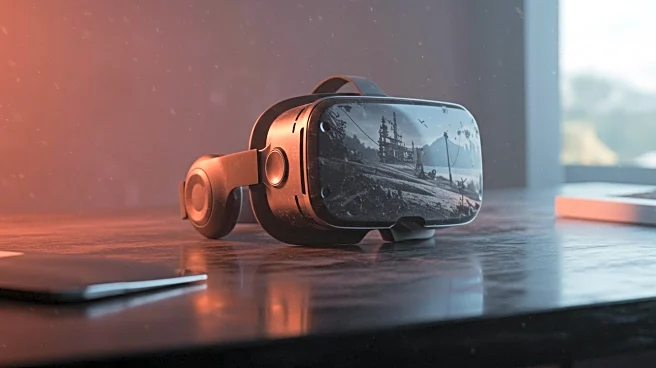What's Happening?
InXile Entertainment, known for its RPG titles, was developing a VR survival game set in the Wasteland universe, led by Brian Hicks, former director of DayZ. The project aimed to blend elements of Wasteland and DayZ, supporting up to 100 players in a persistent server environment. However, the release of Fallout 76, which received negative feedback for its departure from traditional Fallout gameplay, influenced InXile's direction. The game was ultimately cancelled following InXile's acquisition by Xbox, which sought broader platform compatibility beyond VR.
Why It's Important?
The cancellation of InXile's VR survival game highlights the challenges faced by developers in aligning with player expectations and market demands. Fallout 76's reception underscored the importance of maintaining core gameplay elements in established franchises, impacting InXile's project direction. The acquisition by Xbox further complicated the development, as the focus shifted to non-VR platforms, reflecting broader industry trends towards accessibility and cross-platform play. This decision affects stakeholders in the gaming industry, including developers, investors, and players anticipating innovative VR experiences.
What's Next?
Following the cancellation, Brian Hicks moved to New Zealand to work with RocketWerkz on the survival game Icarus. InXile continues to develop other projects, such as Clockwork Revolution, showcased in Xbox's summer event. The gaming industry may see further shifts towards non-VR platforms, influenced by market dynamics and consumer preferences. Xbox's strategic decisions will likely continue to shape the development paths of acquired studios, impacting future game releases and technological advancements.
Beyond the Headlines
The cancellation reflects broader industry challenges in balancing innovation with consumer expectations. The shift away from VR highlights potential barriers to widespread adoption, such as platform compatibility and market size. Ethical considerations arise in managing player expectations and preserving franchise integrity, as seen in Fallout 76's reception. Long-term, the industry may explore new ways to integrate VR technology while addressing these challenges, potentially influencing future game design and development strategies.









